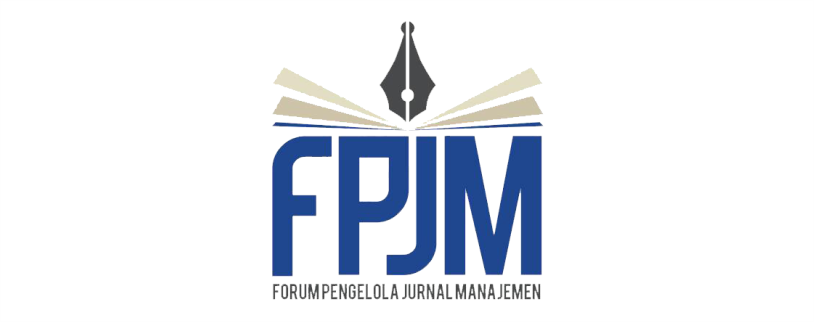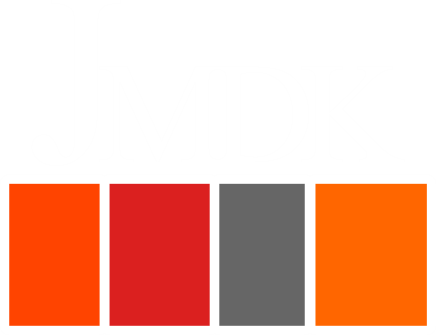Comparison of Capital Market Reactions Before and After the Boycott of Products Due to War
DOI:
https://doi.org/10.26905/jmdk.v13i1.15586Keywords:
event study, Abnormal Return, Product BoycottAbstract
The capital market is affected by economic and non-economic variables. Wars and political turmoil profoundly affect stock prices in the stock market due to their strong correlation with a nation's economic stability. Product boycotts can precipitate crises for corporations, resulting in diminished sales and thus affecting the stock price performance of the impacted firms. This study analyzes the variations in anomalous returns preceding and following the declaration of war-related product boycotts for targeted firms and their non-targeted rivals. This is quantitative descriptive research. The population comprises firms registered on the Indonesian Stock Exchange from 2023 to 2024. The sample included 37 companies, obtained purposive sampling and secondary data from Yahoo Finance.com. Event research analytical techniques were used in the investigation. The Wilcoxon signed-rank test for non-normally distributed data and the paired-sample t-test for regularly distributed data were among the statistical analyses used. The findings indicate a substantial disparity in anomalous returns for enterprises subjected to boycotts before and after the declaration of war-related product boycotts. No substantial difference in anomalous returns was seen for non-boycotted rival companies before and after the announcement of war-related product boycotts.
Downloads
References
Barker, C. A. (1956). Effective stock splits. Harvard Business Review, 34(1), 101–106.
Brigham, E. F., & Houston, J. F. (2006). Dasar-Dasar Manajemen Keuangan. Salemba Empat.
Cox, R. A. k, & Weirich, T. R. (2002). The stock market reaction to fraudulent financial reporting. Managerial Auditing Journal, 17(7), 374–382. https://doi.org/https://doi.org/10.1108/02686900210437471
Davidson, W. N., & Worrel, D. L. (1988). The Impact of Announcements of Corporate Illegalities on Shareholder Returns. Academy of Management Journal, 31(1), 195–200. https://doi.org/https://doi.org/10.5465/256506
Delacote, P. (2009). On the Sources of Consumer Boycotts Ineffectiveness. Journal of Environment and Development, 18(3), 306–322. https://doi.org/10.1177/1070496509338849
Dolley, J. C. (1933). Characteristics and procedure of common stock split-ups. In Harvard Business Review, 11.
Fama, E. . (1970). Efficient Capital Markets: A Review of Theory and Empirical Work. Journal of Finance, 25(2).
Fama, E. F., Fisher, L., Jensen, M. C., & Roll, R. (1969). The Adjustment of Stock Prices to New Information. International Economic Review, 10(1), 1–21.
Feroz, E. H., Park, K., & Pastena, V. S. (1991). The Financial and Market Effects of the SEC’s Accounting and Auditing Enforcement Releases. Journal of Accounting Research, 29, 107–142.
Francis, J., Philbrick, D., & Schipper, K. (1994). Shareholder Litigation and Corporate Disclosures. Journal of Accounting Research, 32(2), 137–164. https://doi.org/https://doi.org/10.2307/2491279
Ghazali, I. (2011). Aplikasi Analisis Multivariate dengan Program SPSS. Badan Penerbit Universitas Diponegoro.
Hartono, J. (2017). Teori Portofolio dan Analisis Investasi. BPFE UGM Yogyakarta.
Huka, C. K. Y., & Kelen, L. H. S. (2022). Dampak Invasi Rusia Ke Ukraina Terhadap Average Abnormal Return Perusahaan Industri Energi Yang Terdaftar Di Bursa Efek Indonesia. Juremi: Jurnal Riset Ekonomi, 2(1), 73–82. https://doi.org/10.53625/juremi.v2i1.2234
Jogiyanto. (2014). Teori Portofolio dan Analisis Investasi. BPFE.
Kellogg, R. L. (1984). Accounting activities, security prices, and class action lawsuits. Journal of Accounting and Economics, 6(3), 185–204. https://doi.org/https://doi.org/https://doi.org/10.1016/0165-4101(84)90024-7
Kim, K. A., & Kim, J. W. (1997). Market Reactions to the Announcements of Product Boycotts. Journal of Business Research, 40(1), 15–20.
King, B. (2011). The Tactical Disruptiveness of Social Movements: Sources of Market and Mediated Disruption in Corporate Boycotts. Social Problems, 58(4), 491–517. https://doi.org/10.1525/sp.2011.58.4.491
Kristina. (2023, November). MUI Haramkan Dukung Agresi Israel ke Palestina, Ini Bunyi Lengkap Fatwanya. Detik.Com.
Mackinlay, A. C. (1997). American Economic Association Event Studies i n Economics and Finance. Source Journal of Economic Literature Journal of Economic Literature, 35(1), 13–39.
MacKinlay, A. C. (1997). Event studies in economics and finance. Journal of Economic Literature, 35(1), 13–39.
McDonnell, M. H., & Cobb, J. A. (2020). Take a Stand or Keep Your Seat: Board Turnover after Social Movement Boycotts. Academy of Management Journal, 63(4), 1028–1053. https://doi.org/doi:10.5465/amj.2017.0890
Mulyono, H., & Rolando, B. (2025). Consumer boycott movements: Impact on brand reputation and business performance in the digital age. Multidisciplinary Reviews, 8(9), 2025291. https://doi.org/10.31893/multirev.2025291
Myers, J. ., & Bakay, A. (1948). Influence of stock split-ups on market price. Harvard Business Review, 26, 251–255.
Nafisa, U. Z., Makaryanawati, M., & Yusoff, H. (2023). Event Study Announcement of Fraud and Abnormal Returns of BUMN Companies. Jurnal Akuntansi Aktual, 10(2), 129–140.
Nursetiana, H., Anisa, W., & Pratama, V. Y. (2025). Analysis Of International Boycott On Stock Performance And Value Of Manufacturing Companies On The IDX. 1, 74–92. https://doi.org/10.20473/baki.v10i1.67085
Rahmani, A. N. (2023). Dampak Perang Israel-Hamas Terhadap Harga Saham Dan Minat Beli Masyarakat Produk Pendukung Israel. Academy of Education Journal, 14(2), 1444–1456. https://doi.org/10.47200/aoej.v14i2.2104
Raza, S., Baiqing, S., Kay-Khine, P., & Ali Kemal, M. (2023). Uncovering the Effect of News Signals on Daily Stock Market Performance: An Econometric Analysis. International Journal of Financial Studies, 11(3). https://doi.org/10.3390/ijfs11030099
Republika. (2023). Mengenal Akar Gerakan BDS yang Ingin Lumpuhkan Ekonomi Israel. Republika.
Saraswati, Y. R., Setiorini, C., & Cornelia, D. A. (2015). Rogalsky Effect jurnal. Jurnal Riset Akuntansi Dan Perpajakan JRAP, 2(1), 43–54.
Sigar, P., & Kalangi, L. (2019). Pengaruh Ukuran Perusahaan Dan Pertumbuhan Penjualan Terhadap Harga Saham Pada Perusahaan Manufaktur Sektor Industry Barang Konsumsi Yang Terdaftar Di Bursa Efek Indonesia. Jurnal EMBA, 7(3), 3029–3039.
Sjahrir. (1995). Analisis Bursa Efek. Gramedia Pustaka utama.
Song, C., & Han, S. H. (2017). Stock Market Reaction to Corporate Crime: Evidence from South Korea. Journal of Business Ethics, 143(2), 323–351. https://doi.org/https://doi.org/10.1007/s10551-015-2717-y
Sulhan, M. (2012). Panduan Praktis Analisis SPSS untuk Manajemen (Keuangan, SDM, dan Pemasaran). Malang: Center Laboratory and ICT (CLICT) UIN Malang.
Suryawijaya, & Setiawan. (1998). Reaksi Pasar Modal Indonesia Terhadap Peristiwa Politik Dalam Negeri (Event Study Pada Peristiwa 27 Juli 1998). Jurnal Kelola Manajemen.
Suteja, J., & Gunardi, A. (2024). Manajemen Investasi dan Portofolio. Refika Aditama.
Tandellin, E. (2010). Analisis Investasi dan Manajemen Portofolio. BPFE.
Yanti, R. Y., & Ermawati, L. (2025). ProBisnis : Jurnal Manajemen Analisis Harga Saham Sebelum Dan Sesudah Pemboikotan Produk Terhadap Harga Saham Pada Perusahaan Yang Terafiliasi Oleh Israel Yang Terdaftar Di Bursa Efek Indonesia. 16(01), 12–21.
Zeidan, M. J. (2013). Effects of Illegal Behavior on the Financial Performance of US Banking Institutions. Journal of Business Ethics, 112(2), 313–324. https://doi.org/https://doi.org/10.1007/s10551-012-1253-2
Downloads
Published
Issue
Section
License

This work is licensed under a Creative Commons Attribution-ShareAlike 4.0 International License.
Authors who publish with this journal agree to the following terms:
(1)Â Copyright of the published articles will be transferred to the journal as the publisher of the manuscripts. Therefore, the author confirms that the copyright has been managed by the journal.
(2) Publisher of Jurnal Penelitian is University of Merdeka Malang.
(3) The copyright follows Creative Commons Attribution–ShareAlike License (CC BY SA): This license allows to Share — copy and redistribute the material in any medium or format, Adapt — remix, transform, and build upon the material, for any purpose, even commercially.












